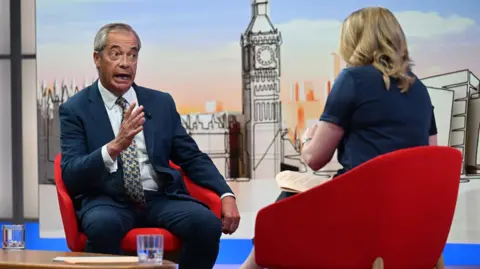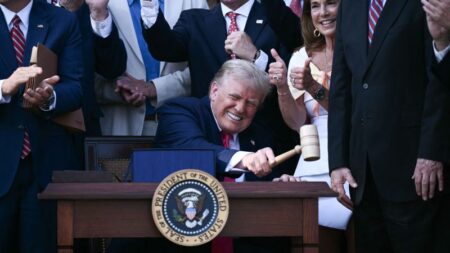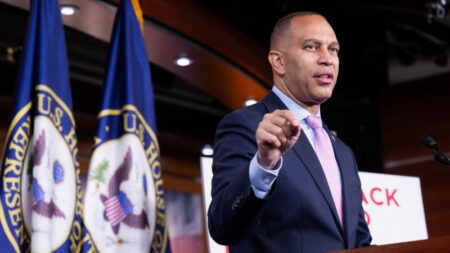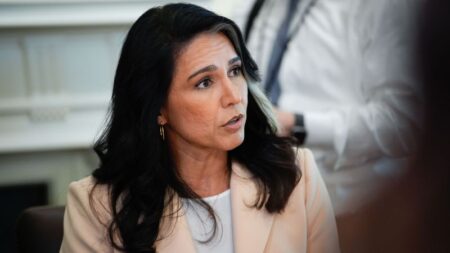In a recent interview with the BBC’s “Sunday with Laura Kuenssberg,” Nigel Farage, the leader of Reform UK, expressed his concerns regarding the obstruction faced by councillors from his party due to impediments fostered by some council officials. The accusations were made in the context of the party claiming control over ten councils during the local elections in England held in May. Farage articulated that these council officials were “hamstrung” by existing bureaucratic systems, which he believes hinder the council’s efficiency and ability to implement their planned reforms.
Since taking control, Reform UK has pledged to tackle wasteful spending and improve the operations of councils under its governance. However, the party has faced criticism regarding some of its financial decisions. Critics argue that aside from promises, there has been little tangible progress towards actual cost reductions. This has particularly manifested in Warwickshire, where opponents have decried the party’s initiative to hire political assistants at a staggering cost of £190,000 annually. The opponents assert that such funds ought to support essential services that directly benefit constituents.
George Finch, the interim leader of the Warwickshire council, justified this high expenditure by asserting the necessity for innovative leadership, claiming that existing council staff have been inadequate in developing effective solutions to pressing issues. At just 19 years old, Finch took over leadership following the prior council leader’s resignation for health reasons. This appointment raises eyebrows and questions regarding the council’s leadership capabilities.
When pressed about whether employing political assistants is an appropriate use of taxpayer resources, Farage remarked on the systemic challenges faced by Reform councillors. He stressed that these representatives encounter substantial “obstructionism” that hampers their operations. Describing Warwickshire as a prime example, Farage suggested that it is essential to have staff who are aligned with the elected representatives, rather than those impeding their efforts.
Moreover, Farage noted that while there are instances where Reform is collaborating well with existing administration structures, certain areas are experiencing “genuine, deliberate obstruction” from officials unwilling to disclose critical financial records. Such lack of transparency around public spending is a major concern for the party and suggests significant friction between the newly elected representatives and entrenched bureaucracies.
An interesting component of the party’s broader strategy includes the establishment of its Department of Government Efficiency (Doge), which launched in June. This initiative, modeled after a similar program from the Trump administration and led by Zia Yusuf, aims to conduct comprehensive audits of local councils to identify waste and improve efficacy. Farage emphasized that Kent County Council would be the first of many to undergo such audits. However, some councils, including Staffordshire, have reported delays in engagement from the unit. Farage defended the relatively slow progress by indicating that the party is still scaling up its operations.
At the heart of the tension is also the spending review within the councils that Reform manages. One controversial decision involved a 600% hike in the allowance for the Reform mayor in Scarborough, which increased from £500 to £3,500. The mayor justified this increase by asserting that it is necessary for covering expenses and facilitating council duties. Farage, however, appeared uninformed about the details of this decision, illustrating the disconnect between party leadership and council management.
In summary, the challenges faced by Reform UK in navigating council governance underline the complexities of local governance and the persistence of entrenched bureaucratic cultures. Farage’s criticisms of council officials depict a struggle for Reform to impose its agenda within frameworks that are hesitantly responding to new leadership. As the party continues to assert itself within the local government landscape, it remains to be seen how these tensions will impact their effectiveness in enacting promised reforms.











